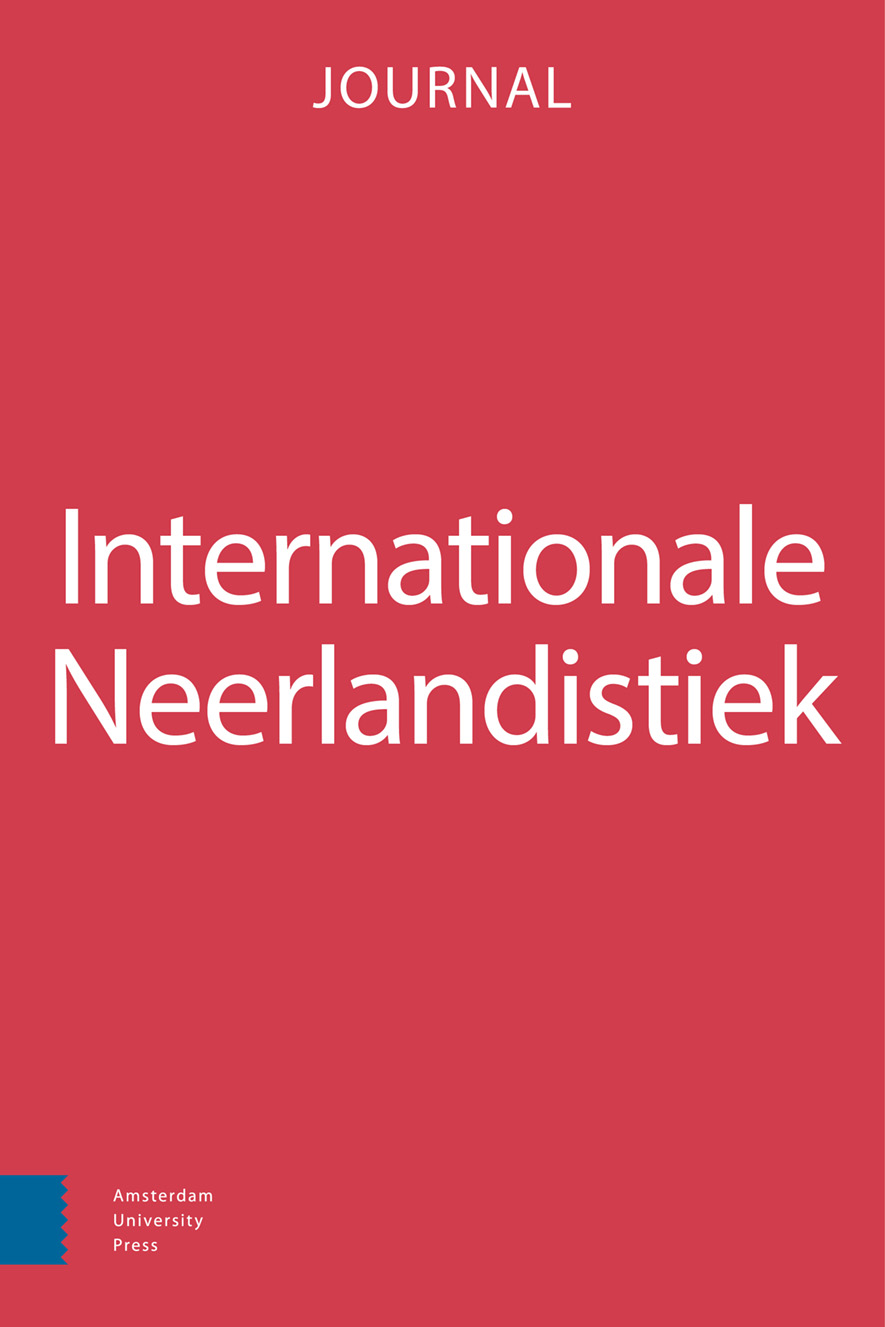-
oa Zullen de goden pas tevreden zijn als zij de tanden in het eigen vlees hebben gezet? - De betekenis van leven en werk van Heinrich von Kleist voor De keisnijder van Fichtenwald (1976) van Louis Ferron
- Amsterdam University Press
- Source: Internationale Neerlandistiek, Volume 51, Issue 3, Oct 2013, p. 217 - 242
Abstract
This article discusses the significance of the life and work of Heinrich von Kleist (1777-1811) in De keisnijder van Fichtenwald (The stone cutter of Fichtenwald; 1976) by Louis Ferron (1942-2005). In this historical novel, which is set in a fictitious Nazi concentration camp, the prisoners perform two plays. In the first, the last hours and joined suicide of Kleist and his beloved Henriette Vogel are brought on stage. In the second, the final act of Kleist’s Penthesilea (1808), in which the amazon queen deprives herself of life, is performed. In this article it is shown that these two plays have a key importance for the interpretation of De keisnijder van Fichtenwald. They also shed new light on the ideas of Ferron on fascism, which are placed within the broader framework of German cultural history.


